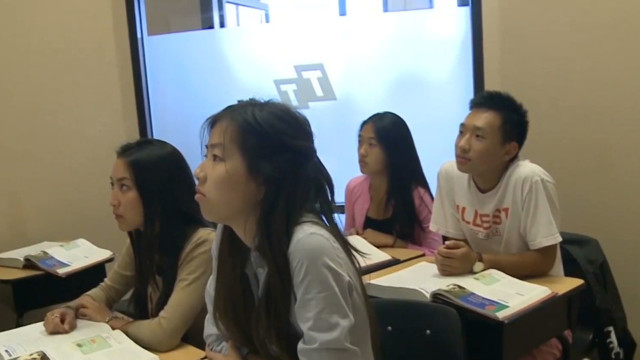The Trump administration is considering restrictions on the number of Chinese student visas. That was not included in the recent tariff announcement, but such restrictions could come later.
As CGTN’s Karina Huber reports, education experts warn that would be bad for U.S. higher education and the economy overall.
Right now, there are more than one million international students enrolled in U.S. colleges.
A third of them are from China. President Donald Trump has indicated he’d like that to change. His administration is looking at restricting the number of visas for Chinese students.
The president has long lamented the trade deficit with China, but when it comes to higher education, the U.S. runs a large surplus with the rest of the world; not a deficit.
“A modest number of Americans spend a little bit of time at universities in China, in Europe and other places. But many international students and China is far and away the biggest source, basically get their entire higher education in the United States,” explained Dick Startz, Economics Professor at the University California Santa Barbara.
“If those students were suddenly to disappear, or we would see a serious decline, I think there would be very unfortunate consequences just for the quality of instruction for everyone along with the loss of tuition revenue,” warned Bradley Farnsworth, Vice President of the American Council on Education.
Tuition at Columbia University and many other colleges in the United States run upwards of $50,000 a year.
Many American students don’t pay that much because they get scholarships and financial aid.
International students, on the other hand, usually pay full price.
“Chinese students come here and buy pizza and they rent apartments and they buy cars and all of that goes into the local economy and makes jobs and helps support the local economy,” said Startz.
Students from China spend at least 12 billion dollars a year in the U.S. on tuition and living expenses.
“A loss of international students for the United States is bad public policy. It’s bad for higher education and it’s bad for the country,” added Farnsworth.
Opponents of the visa restrictions say they’re also un-American.
 CGTN America
CGTN America

